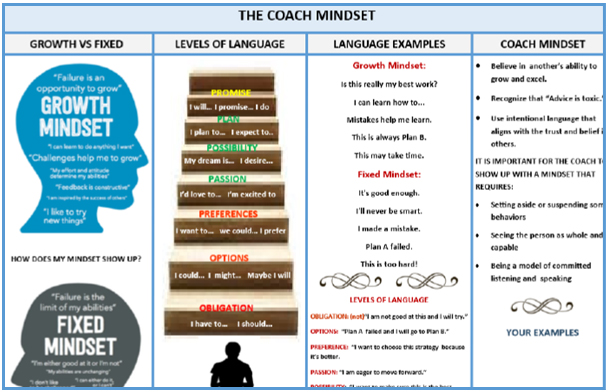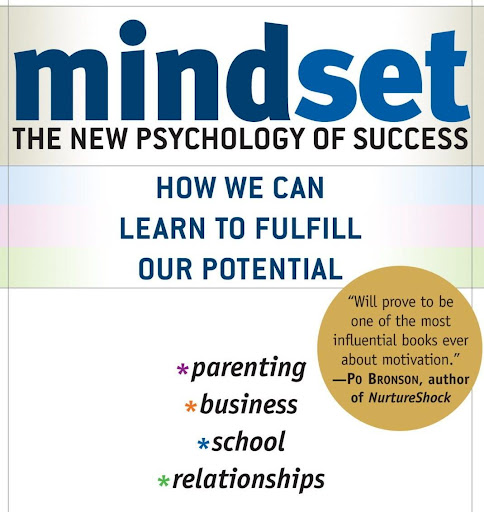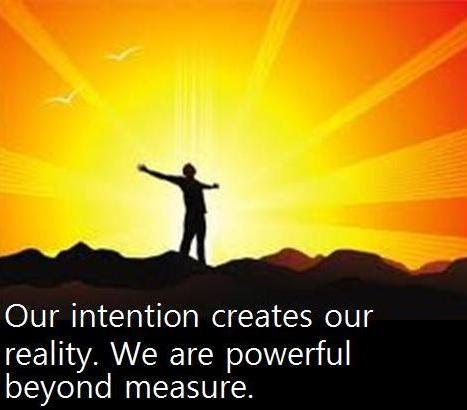Mindset
 Brain research has identified that the brain constantly senses and assesses threats or safety states. Grasping the importance of what the brain is doing naturally, it is essential in communication to create safe environments for meaningful conversations. We do this by PRESUMING POSITIVE INTENT. We must believe the best in others; their noble purpose, desire to do their best, and ideas, beliefs, or opinions result from their life experiences. We listen to understand because their point of view matters to them. We listen for their passion or what they want and presume their best. THIS IS THE MINDSET OF A COACH LEADER. It is often challenging and may push against our Status, Certainty, or Relatedness. When our goal is real change and real commitment, we listen and speak with POSITIVE INTENT.
Brain research has identified that the brain constantly senses and assesses threats or safety states. Grasping the importance of what the brain is doing naturally, it is essential in communication to create safe environments for meaningful conversations. We do this by PRESUMING POSITIVE INTENT. We must believe the best in others; their noble purpose, desire to do their best, and ideas, beliefs, or opinions result from their life experiences. We listen to understand because their point of view matters to them. We listen for their passion or what they want and presume their best. THIS IS THE MINDSET OF A COACH LEADER. It is often challenging and may push against our Status, Certainty, or Relatedness. When our goal is real change and real commitment, we listen and speak with POSITIVE INTENT.
International Coaching Federation definition of MINDSET: A coach Embodies the Coaching Mindset
DEVELOPS AND MAINTAINS A MINDSET THAT IS OPEN, CURIOUS, FLEXIBLE, AND CLIENT CENTERED.
- Acknowledges that clients are responsible for their own choices.
- Engages in ongoing learning and development as a coach.
- Develops an ongoing reflective practice to enhance one’s coaching.
- Remains aware of and open to influence of context and culture on self and others.
- Uses awareness of self and one’s intuition to benefit clients.
- Develops and maintains the ability to regulate one’s emotions.
- Mentally and emotionally prepares for sessions/conversations.
- Seeks help from outside sources when necessary.
 The MINDSET of the 21st century leader is to be a COACH LEADER. The most important function of a leader is to grow the thinking and talent of those they lead. The leader’s legacy will be a committed team of great thinkers, problem solvers, & new leaders who are more knowledgeable, confident, and competent than ever before.
The MINDSET of the 21st century leader is to be a COACH LEADER. The most important function of a leader is to grow the thinking and talent of those they lead. The leader’s legacy will be a committed team of great thinkers, problem solvers, & new leaders who are more knowledgeable, confident, and competent than ever before.



